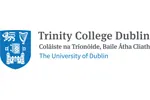About Science, BSc - at Trinity College Dublin
The degree programme in Science is structured so as to offer the student in the first two years a choice of routes to one of the thirteen distinct specialisations within the School of Natural Science. Courses in the first and second years are designed to provide a comprehensive training in the basic sciences enabling students to proceed in the third and fourth years to achieve a high level of expertise in their chosen subject.
Year 1 SubjectChoicesStudents take either:
Mathematics + 2 subjects from the list below:
OR
Mathematical Methods + 3 subjects from the list below:
Biology
Chemistry
Geography/ Geology
Physics
Year 2 SubjectChoicesStudents select 3 subjects from the following list:
Biology I
Biology II or Mathematics
Chemistry
Geography or Physics
Geology
Years 3 and 4 SubjectChoices Students take one of the subjects listed in the third and fourth years. In the third year, students may also have the option of taking courses in a related subject:
Course ContentThe Science course is flexible to encourage students to exercise an element of choice throughout the four years of the Science programme. Teaching and learning is conducted via lectures, tutorials and laboratory classes.
Year 1 Subject DescriptionsBiology: Molecular and cellular biology, genetics, developmental biology, the biology of lower organisms, plant and animal biology and ecology.
Chemistry: In Inorganic Chemistry you will study crystal structures, main group and transition metal chemistry. In Organic Chemistry you will study aromatic and bifunctional compounds, spectroscopy and stereochemistry. Physical Chemistry includes chemical thermodynamics, basic quantum chemistry and spectroscopy, polymers and colloids and kinetics. Practical course: Synthesis for both inorganic and organic compounds and analysis and spectroscopic measures and experiments in physical chemistry.
Geography: Introduction to geography focusing on nature, resources processes operating within and between the physical and human environments, maps, mapping and computer-based geographical information systems.
Geology: Origin of the universe, solar system, and planet earth and how the planet functions. The practical course covers geological materials - rocks, minerals and fossils.
Mathematics: Complex numbers, analytical geometry and curve sketching, trigonometry, logarithms, introduction to partial derivatives, matrices, vectors and differential equations, partical and rigid body mechanics and introduction to numerical computing.
Mathematical Methods: This is a short foundation in mathematics and computing for first year students not taking mathematics as a full subject.
Physics: Students attend lectures and practical laboratory classes covering a range of topics including mechanics, properties of matter, heat, optics, waves and sound, electricity and modern physics.
Year 2 Subject DescriptionsBiology I (Cellular and Molecular Biology): Fundamentals of biochemistry, introduction to microbiology and immunology, microbial and molecular genetics, neurophysiology and neurobiochemistry.
Biology II (Organisms and Environment): Vertebrate evolution and diversity, vertebrate form and function, biology and evolution of selected plant groups, adaptation of plants to environments, plant breeding and use, population genetics and evolution, principles of ecology based on selected habitats.
Chemistry: Molecular biology, environmental science, molecular engineering, devising methods to prepare proteins and nucleic acids.
Geography: Environmental systems (geomorphology, climate, soils and biogeography), economic geography, historical and contemporary geography, culture and environment, statistical methods and mapping and GIS (Geographical Information Systems).
Geology: Topics range from the arrangements of atoms in tine crystals to the the architecture of mountain ranges, the study of ancient life-forms, reading geological maps, examination of rocks using the microscope, and fieldwork.
Mathematics: Students follow core courses in algebra, analysis and mathematical methods, together with other optional courses.
Physics: Subjects include special relativity, electricity, magnetism, oscillations, waves and optics, kinetics theory and thermodynamics, quantum physics, nuclear physics and elementary particles, trend and issues in physics. Experiments in the practical class are on topics covered in the lectures.
Years 3 and 4 Subject List Biochemistry with Cell Biology
Biochemistry with Immunology
Biochemistry with Structural Biology
Botany
Chemistry
Environmental sciences
Genetics
Geography
Geology
Microbiology
Neuroscience
Physics
Physics and Astrophysics
Physiology
Zoology

